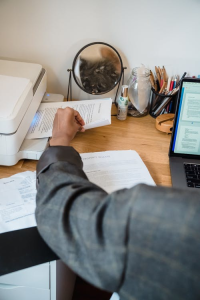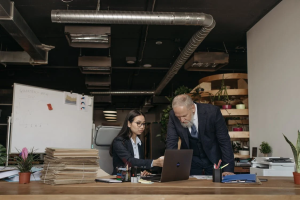Ways To Avoid Making Self-Assessment Tax Return Mistakes
When it comes to taxes, it’s essential to keep them as error-free as possible to avoid paying unnecessary amounts or facing penalties. The process of filing self-assessment tax returns is intimidating and tedious; even if you’ve done it before, you may make costly mistakes or miss the deadline(Tax Return).
If you want to keep your tax bill low and avoid making any mistakes, follow these tips:
Learn Everything about Self-Assessment Tax Return
Whether it’s your first time or not, learning about self-assessment tax returns can save you from making many mistakes. With so many things to look after, it’s natural to forget a few requirements, which may cause more problems later.
You can take help from your tax advisors or check online sources such as HMRC’s official website. When doing research, make sure you stick to the things related to your tax circumstances. Besides that, HMRC provides helpful guides on filling out self-assessment tax return forms and other pages.
Register for UTR Number in Advance
To file a self-assessment tax return, you need to register for UTR- Unique Taxpayer Reference number. Once you apply for it, you’ll typically receive it after ten days, which takes another ten days for activation. Register for it in advance to avoid missing the filing deadline.

Make Sure You’ve Claimed All Your Allowable Expenses
One advantage of self-assessment tax returns is that you can claim all your allowable expenses to reduce your overall tax bill. It doesn’t matter if you’re a self-employed business or a private residential landlord; there are many allowable expenses you can claim. Most individuals are unfamiliar with the expenses they can claim and end up paying more tax than they have to. Make sure you don’t make the same mistake and claim your taxes with the help of a tax specialist.
Here are some of those expenses:
- Staff costs: hiring, salaries, pensions, contracts, etc.
- Financial costs: insurance, accountancy, bank charges
- Office costs: equipment, supplies, property, software
- Marketing: PR, advertising, subscriptions, website costs, etc.
- Travel costs: fuel, repairs, fares, parking fees
- Business premises costs: utility bills, rent, business rates
- Training costs: training or course costs related to your business
For other things that you use for both personal use and business (phones or vehicles), you can only claim the proportion incurred for your business. Don’t claim for ineligible expenses (things you’ve bought for personal use); it’s not only considered a fraud but has strict penalties.
Learn and Apply for Tax-Free Allowances
Besides allowable expenses, many people forget to claim tax-free allowances or don’t know about them. You may already know about the Personal Allowance of £12,570 that HMRC offers, but there are multiple other allowances you can get. They include Trading Allowance, Property Allowance, Mileage Allowance, Dividend Allowance, Marriage Allowance, Blind Person’s Allowance, etc. Some of these allowances aren’t applied automatically, so make sure you apply for them after confirming your eligibility. Hiring a tax consultant may make things easier as they’d evaluate your tax circumstances and inform you about the allowances you qualify for.
File Early
Running a business requires a lot of tasks and responsibilities; filing early saves you from missing the deadline and penalties. The deadline for online filing is 31 January, and 31 October for paper tax returns, but you can file them at the beginning of the tax year. Doing this will give you ample time to evaluate your taxes and complete the tax return.
Taxes are already intimidating; leaving things at the last moment can put more pressure, and you might make more mistakes. When you file early, you’ll have ample time to thoroughly evaluate your taxes and complete the self-assessment tax return.
Complete Your Tax Return Carefully
It only takes 3–4 hours to complete your self-assessment tax return, so make sure you don’t rush and miss something important. Stay focused and seek help whenever needed to avoid mistakes. If you fail to offer the correct information, you may face penalties.
Most errors come from calculations and figures; double-check them to ensure you’re paying the correct amount. Here are a few things to keep a close eye on:
- Don’t forget to sign and date your tax returns before sending them
- Check your national insurance and UTR number
- Always write figures and refrain from phrases like “as per accounts”, etc.
- Carefully tick the boxes according to HMRC guidelines.

Have All the Records Ready
To complete your tax return, you need to keep all your records organized and ready. Here are some records that you’ll need:
- Bank statements
- Capital gains
- Expense records
- Pension records
- Foreign income (you also have to provide proof of tax paid abroad)
- Benefits such as job seekers allowance, maternity and paternity pay or statutory sick pay
- Student loan payments
- P11D, P45, and P60
If you’re a sole trader, you’ll also need:
- Receipts
- Records of purchases, sales, expenses and takings
- Cash books
- Mileage records
- Invoices
- Personal money invested in the business or withdrawal for personal use
Include Complete Details of Your Taxable Income
When doing self-assessment tax returns, you must include details of all your taxable income. Many individuals leave out their taxable income to avoid paying taxes, but doing this has many negative consequences.
Make sure you include the following incomes if you have them:
- Pension income
- Income earned overseas
- Child benefit (if you or your spouse earns $50,000+ annually
- Share dividends
- Commissions or tops
- Casual part-time work earnings
- Interest
- Capital gains tax
If you’ve filed your tax return without declaring some of your income, you can still amend it, and your taxes will be recalculated. This can be quite inconvenient, so make sure you include all the details while filing.
Review Your Tax Return by Professionals
Tax professionals have extensive experience and can detect any error you may have missed. Although hiring them will cost you some amount, doing this will offer peace of mind and save you from any hassle or penalty.
Self-assessment tax return specialists will point out mistakes and tell you about the eligible allowances or tax deductions you can claim, lowering your tax bills.

IBISS & CO. is a leading chartered accountant firm in London and Walsall. They offer accounting services and tax return consultancy for small businesses, self-employed and other individuals. Visit their website or contact them for details.
About the Author
The author is an experienced tax advisor affiliated with a chartered accountant firm in London. He guides sole traders and business owners regarding taxes and loves playing golf in his free time.
